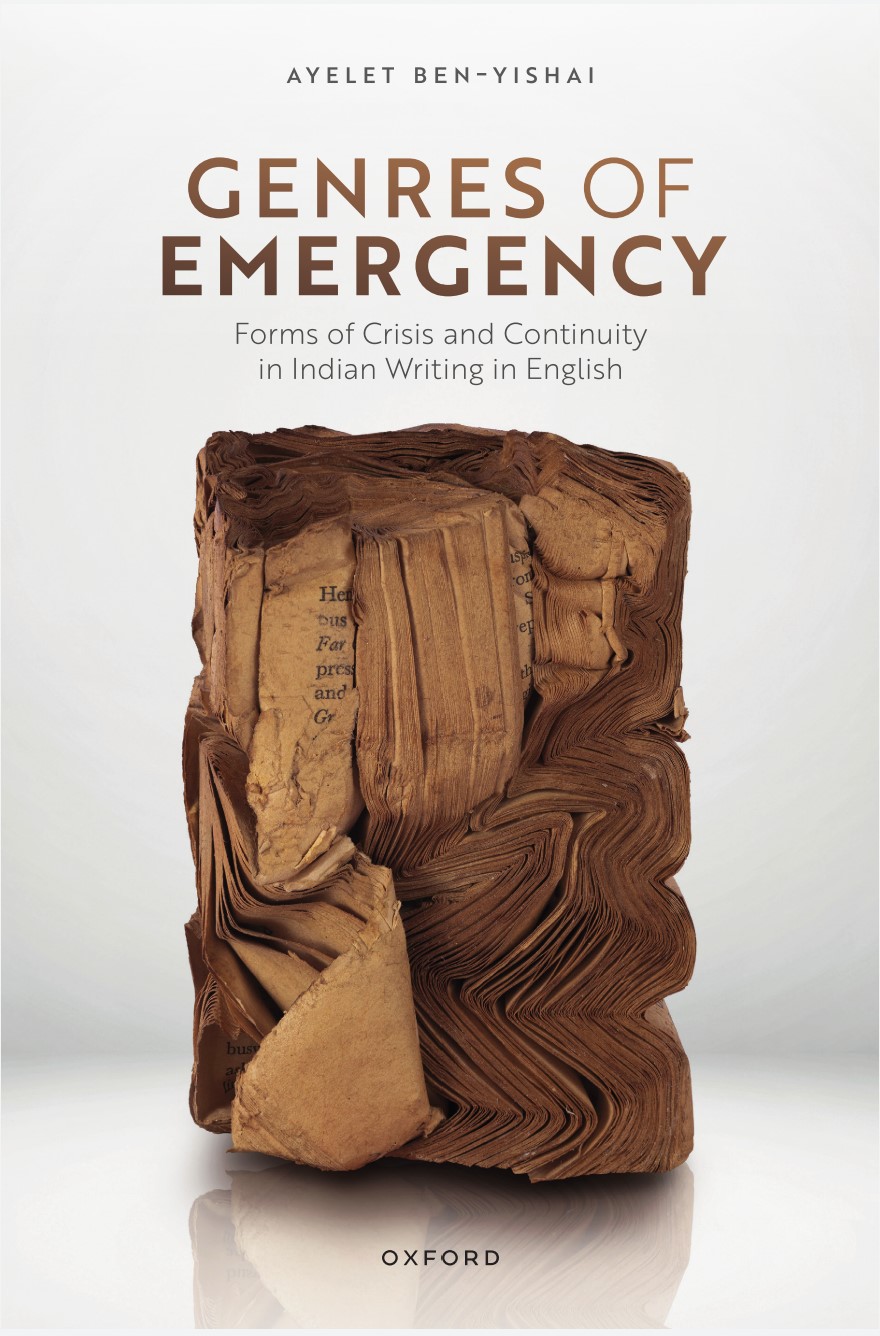Genres of Emergency: Forms of Crisis and Continuity in Indian Writing in English

with Prof. Ayelet Ben-Yishai
Department of English Language and Literature, Faculty of Humanities
University of Haifa
* The Center is in room 1013, the first floor, Hamadrega building.
Abstract
The situation in India today, the rise of authoritarian regimes in the world, the recent pandemic, and our local constitutional crisis all demand that we take a critical view of emergency facts and fictions to rethink their discursive implications for our times. Drawing on my research on the literature of the 1975-77 Emergency in India, my talk develops a three-fold argument. First, I show that the literary discourse of the Emergency, like its events, is structured on the tension between crisis and continuity, between the unprecedented and ongoing. I then argue that in addressing this tension, the authors of Emergency fiction take seriously the genres in which they write and use them to mobilize literary conventions as political interventions, to reach back in time and across cultures and languages, invoking past iterations of these genres and histories and anticipating those to come. I finally consider the historical-political event of the Emergency in terms of genre, offering a novel and productive way to analyze the specific historical event as well as the more general phenomenon of states of emergency and the cultures that they draw on and generate.
Ayelet Ben-Yishai is Associate Professor and Chair of the English Department at the University of Haifa, where she specializes in postcolonial and Victorian literature and culture, and in the history and theory of the novel, with particular focus on questions of realism, genre, and literary epistemology.
A comparatist by training, she has degrees in both law and literature and has written extensively on their intersections, especially in Common Precedents: The Presentness of the Past in Victorian Fiction and Law (Oxford, 2013). Her more recent book, Genres of Emergency: Crisis and Continuity in Indian Writing in English (Oxford 2023), shares with its predecessor an understanding that forms and formal concerns travel across disciplinary and textual categories to shape our culture at large. If the first book recognized “precedent” as a cross-disciplinary idea and form that came to shape disparate parts of Victorian law and culture and provide a way for Victorians to understand their relation to the past in the sake of a future, here “emergency” carries similar weight, conceptualizing new ways of imagining the relationship between politics and literature.
She has been an Honorary Fellow at the IRH at UW-Madison, a Fellow at the Cornell Society of Fellows, a Visiting Scholar at Jadapur University in Kolkata, and a recipient of two ISF grants for her research on the postcolonial novel in India. Her teaching, research, and way of being in the world often overlap, allowing her to think and write about the political and discursive problems of complicity.

